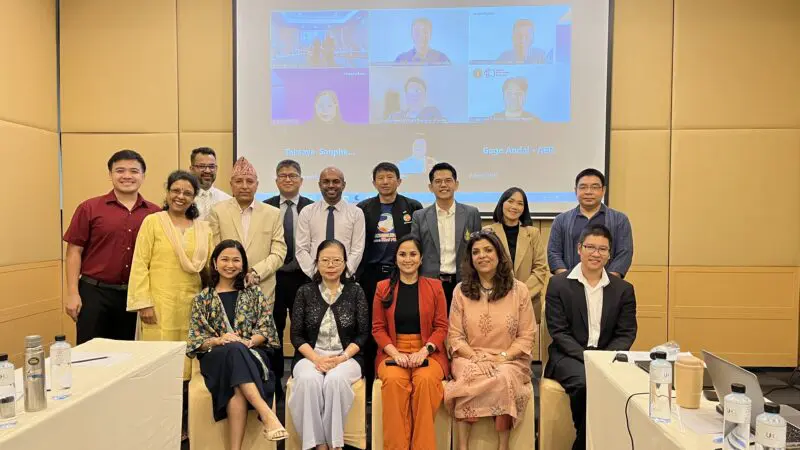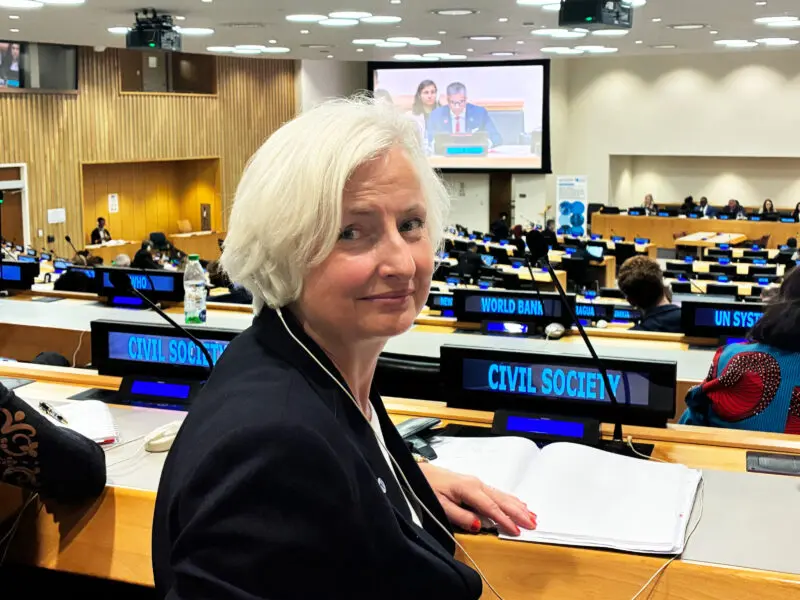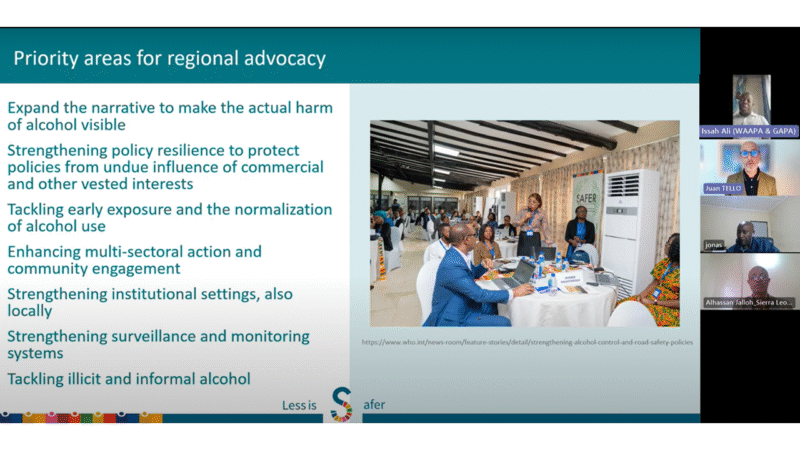In just a few years, the West African Alcohol Policy Alliance (WAAPA) has been instrumental in developing and adopting evidence-based public health policies in several West African countries. The week before Easter, delegates from the eight member alliances met for WAAPA’s Annual General Meeting (AGM) in Accra, Ghana.
With members from eight countries in West Africa, it is both challenging and costly to gather in one place. This was therefore the first time since WAAPA was founded in Freetown (Sierra Leone) in 2017 that the alliance could hold a physical AGM. And although WAAPA has a well-developed structure for online collaboration and meetings, there is no doubt that the benefit of being able to meet face-to-face was significant.
Important Issues on the Agenda
The AGM lasted for three days, and in addition to the mandatory items such as accounts, annual report, and work plan, participants also adopted guidelines for diversity and inclusion and discussed their policy against sexual exploitation, abuse, and harassment.
The annual meeting also addressed how alliance members should act in contexts where alcohol companies or organizations funded by alcohol companies are present. For such occasions WAAPA practices a clear «non-engagement policy.»

Participants at WAAPA’s annual meeting in Accra. Front row from left: Alagie B. Janneh (Gambia), Suley Sumani (Ghana), Boi-Jeneh Jalloh (Sierra Leone, chairperson), Angela Bekederemo (Nigeria), Roseline T. Richards (Liberia), Djibril Wele (Senegal). Back row from left: Benjamin Anabila (Ghana), Chijioke Nwokocha, Mohamed Sandi (Sierra Leone), Neudoteh Torbor (Liberia), Alioune Diouf Raphael (Senegal), David Folaranmi (Nigeria), Landaogo Wilfrid Ouedraogo (Burkina Faso), Habib T. Kamara (Sierra Leone), Serge Dedjinou (Benin), Debora Sewoenam Agboado (WAAPA), Eva S. Braaten (FORUT), Issah Ali (WAAPA), Augustin Faton (Benin).
Recipe for Success
Since WAAPA’s inception in 2017, Liberia and Sierra Leone have adopted national alcohol policies, thanks in no small part to significant contributions from WAAPA members in these two countries.
Apart from Ghana and Benin having less comprehensive policy documents, none of the other countries yet have policies or legislation regulating alcohol from a public health perspective, as recommended by the World Health Organization (WHO).
However, the national alliances in both Gambia, Nigeria, and Senegal have contributed to developing draft policies that are planned to be adopted by national authorities in the coming years. These are significant steps in the right direction.
WAAPA has primarily succeeded through a good mix of knowledge, determination, and sharing across countries, facilitated by a highly competent and active secretariat in Ghana led by Issah Ali. Additionally, there is a deep passion among the alliance members to reduce and prevent disease, addiction, ruined lives, violence, and broken families. Unfortunately, these are often consequences of alcohol use, especially in countries with weak welfare and treatment systems and where a large part of the population is economically vulnerable.
The recipe for success also involves balancing the roles of watchdog and partner to national authorities. In the various countries, the alliances also contribute significant expertise on effective preventive measures and have a unique ability to gather and build public support for these measures.
Challenges
The main challenge for WAAPA and the national alliances are alcohol companies that use a wide range of unethical strategies (including marketing, promotion and policy influence) to increase profits and avoid regulations of their activities.
To adopt effective policies for the benefit of the population, it is therefore essential to keep aggressive alcohol companies at a safe distance from where policies are formulated and adopted.
Another challenge is the lack of funding for WAAPA and the member alliances’ activities. There is no doubt that the prevention of alcohol harm is underfunded worldwide, especially on the African continent where the battles to introduce good public health policies in several areas are now taking place.

WAAPA started with English as the working language but has gradually included more French-speaking countries. This makes the alliance bilingual, and the entire annual meeting was simultaneously translated by skilled interpreters.

In the top image of the article: Eva S. Braaten (FORUT), Angela Bekederemo (Nigeria), and David Folaranmi (Nigeria).






